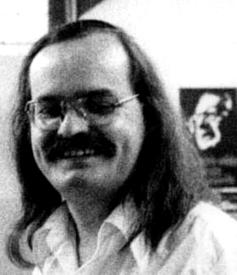Va

Vallières, Pierre (1938-1997)
Born in Montreal to a working class family, Pierre Vallières began his political life in 1962 in the liberal federalist circles around Pierre Trudeau’s magazine Cité Libre, which he soon abandoned to work for independence for Quebec. By 1966 he had moved to a position calling for armed struggle to set up an independent and socialist Quebec and, with Charles Gagnon, he established a cell of the Quebec Liberation Front (FLQ). Between May and July of that year the cell carried out a flurry of actions, one of which, a bombing in solidarity with striking workers, resulted in the death of a secretary.
The police having arrested members of their cell, Vallières and Gagnon fled to the USA, where they demonstrated in front of the UN in support of their comrades imprisoned in Montreal. Arrested in New York and deported to Canada, in 1968 Vallières was sentenced to life in prison for his FLQ activities. Released on appeal after serving 30 months, he was arrested along with hundreds of other militants in 1970 , when the Trudeau government imposed war measures after the kidnappings by the FLQ of Quebec’s Labor Minister Pierre Laporte, and British commercial attaché James Richard Cross.
Laporte’s execution at the hands of the FLQ cost it what public support it had, and Vallières himself soon publicly renounced the movement and joined the Parti Québécois (PQ). He ultimately left the PQ, and spent the rest of his life writing and attempting to return to the stage to which he had been so central in the sixties. Active in community organizing and with left-Catholic groups, he came out as gay in his last years.
His monument, though, is his 1968 autobiography, Nègres Blancs d'Amerique (White Niggers of America), which is both a brilliantly written account of his life, and an incisive Marxist analysis of Quebec as a colonized society.
See FLQ History Archive.
Vandervelde, Emile (1866-1938)
Belgian right-wing socialist and one of the leaders of the Second International. During the First World War he was one of the most extreme social-chauvinists, becoming Prime Minister, and was extremely hostile to Soviet Russia, acting in 1919 as Belgium's signatory to the Versailles treaty. Made a special visit to Moscow in 1922 to act as a defence witness in the trial of the Right Socialist-Revolutionaries.
Varlet, Jean-François (1764-1837)
Militant Enragé of the French Revolution. Born in the provinces, he moved to Paris and was a supporter of the voice of the sans-culottes, Jacques Hébert. Arrested in 1793 for his support of the latter, he was released just a few days later and worked actively during the insurrections of May 31 – June 2, 1793. Arrested again for a short time later that year, he was arrested for the last time after the fall of Robespierre in 1794. By the early years of the 19th century he was a supporter of Bonaparte.
See Jean-François Varlet Archive.
Varlin, Louis-Eugéne (1839-71)
French worker and leader of the First International, member of the Central Committee of the National Guard and of the Paris Commune of 1871.